
Faculty of Education & Liberal Studies
June 17-18, 2026
6th
International
Conference 2026
From Insight to Impact: Driving Development through Evidence-Based Solutions
Conference Overview
Welcome to the Faculty of Education and Liberal Studies' 6th staging of our
International Conference 2026
At the 6th staging of the biennial Faculty of Education and Liberal Studies’ International Conference, we are excited to bring together researchers, educators, policymakers, development practitioners, and academics to showcase and discuss applied research that generates practical, evidence-based solutions for sustainable development in small island states and the broader developing world. This conference emphasizes translating research insights into actionable interventions that address real-world challenges in these vulnerable and dynamic contexts. As we continue to grapple with compounded challenges, including worrying educational outcomes, limited resources, climate vulnerability, economic dependence, and the enduring legacies of colonialism that exacerbate our exposure to global inequities and external pressures, applied research plays a critical role in generating context-specific, actionable insights that empower communities, inform policy, and drive sustainable development. We particularly welcome contributions that integrate perspectives from education, the social sciences, the humanities, and the STEM fields to foster interdisciplinary dialogue on development challenges.
Conference Focus
- Technology, Equity & Innovation for Sustainable Development
- Interdisciplinary Approaches to Development
- Language, Culture and Communication for Sustainable Development
- People, Society, and Sustainable Progress
- Learning Analytics, Data-Informed Curriculum and Intervention Design
- Education in Context: Shapers of Educational Outcomes
Location
University of Technology, Jamaica (Papine Campus) - Shared Facilities
Call for Abstracts
Academic Research Papers
- Academic papers should address one of the topics listed in the call for papers and may present empirical or theoretical research. Submissions must report findings from a scholarly study relevant to the conference theme. Accepted papers will be presented in 15-minute sessions highlighting the key aspects of the research. This category is suitable for researchers with completed or near-completed work.
Posters
- Posters provide visual summaries of research, projects, or innovations that can be communicated succinctly or benefit from interactive dialogue. Posters will be displayed for the duration of the conference, with a scheduled session for presenters to discuss their work with attendees.
Work in Progress or Conceptual Papers
- This category welcomes submissions describing ongoing research, preliminary findings, or emerging conceptual or theoretical ideas. Papers do not need to be fully developed but should present promising insights or frameworks that would benefit from constructive feedback and scholarly engagement.
Non Academic / Industry Contributions
- Practitioners and organisations, including professionals, NGOs, government agencies, consultants, journalists, and community groups, are invited to submit presentations or demonstrations. These may include case studies, programme evaluations, policy briefs, organisational innovations, or other applied evidence-based solutions aligned with the conference theme.
Workshops
- We invite proposals for interactive workshops that foster dialogue, skill-building, and practical engagement among participants. Workshops should provide hands-on experiences, collaborative problem-solving, or innovative approaches relevant to the conference theme of development and transformation. Sessions may focus on applied strategies, emerging practices, or tools that empower participants to implement solutions in their respective fields. Abstracts should clearly outline the objectives, methodology, and expected outcomes of the session.
Panels
- Panels should consist of 3–5 presenters and a designated Chair to moderate the discussion. Proposals must address a common theme or issue and offer complementary perspectives. This format is ideal for research teams, multi-institutional collaborations, or groups engaging with a topic from multiple angles.
Media and Creative Works
- Submissions for this category showcase creative, multimedia, or artistic submissions that present evidence, explore social issues, or reflect human experiences through innovative formats. Examples include documentaries, photo essays, podcasts, digital storytelling, or other creative works aligned with the conference theme.
Roundtables
- Submissions for roundtables reflect interactive sessions focused on a critical issue, emerging challenge, or key question. They prioritise dialogue and shared reflection rather than formal presentations. This format is suited to researchers, practitioners, and community stakeholders seeking collective problem-solving or collaborative exploration.
SUBMISSION REQUIREMENTS
The conference looks forward to receiving abstracts which meet any of the following criteria:
Abstracts: 250-300 words, clearly stating research question, methodology/approach, and key findings or implications
2.Full papers (where applicable): Structured with introduction, literature review, methodology/approach, findings/ analysis, discussion, and conclusions
3.All submissions must include evidence of empirical grounding, theoretical engagement, or practical application
4.Papers should clearly articulate the development relevance and implications for policy, practice, or education
5.All papers must follow academic citation standards (e.g. APA)
6.Submissions must include author names, contact information, institutional affiliation, and a brief biography (50-75 words) and a professional headshot.
7.All manuscripts must be in English
8.Submitted materials should be double-spaced, 12-point font, with 1-inch margins
Abstracts should be submitted by February 13, 2026 to our online submission portal or emailed to:
felsconference@utech.edu.jm
Please refrain from including your name in the title. Confirmation of receipt will be sent within 48 hours. If you do not receive confirmation, please follow up with the conference secretariat.
IMPORTANT DATES
Abstract Submission Deadline: February 13, 2026
Notification of Abstract Acceptance: March 5, 2026
Conference Dates: June 17 – 18, 2026
Venue: Shared Facilities, University of Technology, Jamaica
EVALUATION CRITERIA
Relevance: Direct connection to development challenges in small island states or the developing world; significance for education, social sciences, humanities, or STEM fields
Evidence Based: Strength of evidence, methodology, data quality, or theoretical grounding
Originality: Novel insights, innovative approaches, or underexplored research questions
Actionability: Clear implications for policy, practice, education, or further research
Clarity: Well-articulated arguments, accessible writing, and effective communication to interdisciplinary audiences
Rigour: Sound research design, appropriate analysis, transparent discussion of limitations
PUBLICATION OPPORTUNITIES
Selected papers from the conference will be considered for publication through multiple outlets:
- Peer-reviewed edited volume or special journal issue
- Open-access conference proceedings
- Opportunities to contribute to policy briefs for development practitioners
- Potential articles in education and development practitioner journals
Authors will have the opportunity to incorporate feedback from the conference presentation into revised submissions.
CONTACT INFORMATION
CONFERENCE SECRETARIAT
Faculty of Education and Liberal Studies
University of Technology, Jamaica
Kingston, Jamaica
Email: felsconference@utech.edu.jm
Conference Speakers

The Most Honourable Andrew Michael Holness ON, PC, MP
Prime Minister of Jamaica
Keynote Speaker
The Honourable Fayval Williams, MP
Minister of Education and Youth
Minister of Government
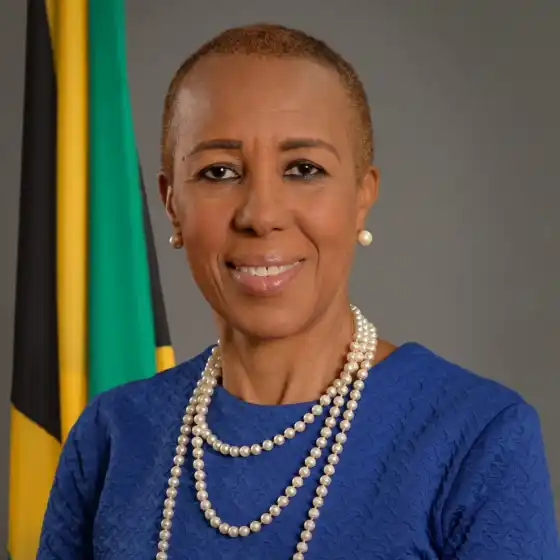
The Honourable Fayval Williams, MP
Minister of Education and Youth
The Hon. Fayval Williams, MP, is Minister of Education and Youth. Mrs. Williams is a Chartered Financial Analyst (CFA) by profession. She has an MBA with concentration in Finance from the Wharton Business School at the University of Pennsylvania and a BA (cum laude) in Economics from Harvard University in Cambridge, Massachusetts.
Mrs. Williams was elected Member of Parliament for St. Andrew Eastern in the recent general election and was the former Executive Director of Kingston Properties Limited.
Prior to Kingston Properties, Mrs. Williams served as Chief Investment Officer of JMMB Limited from March, 2005 to September, 2007 with investment responsibilities spanning the trading department, investment research, and pensions. Also, during the period September 2002 to February 2004, Mrs. Williams consulted with JMMB in the areas of market risk management and investment research where she led that company’s efforts to develop investment research capabilities. Mrs. Williams also served as the Head of the Valuation and Pricing team for JMMB’s public offering.
In 2004, Mrs. Williams consulted with the Financial Services Commission (FSC) in the area of Research and Policy. Prior to returning to Jamaica, Mrs. Williams was Senior Vice President at Putnam Investments, in Boston, a top-10-global mutual fund manager. Her investment work spanned a broad cross-section of industries. She also had portfolio management responsibilities for an equity portfolio product and led Putnam’s efforts to incubate a market neutral hedge fund.
Mrs. William’s investment experience also includes approximately five years as Vice President at Wellington Management Company in Boston, Massachusetts. Her focus was on fixed income securities investments. Prior to Wellington, she was a Fixed Income Analyst at Northwestern Mutual Life Insurance Company in Milwaukee, Wisconsin and shared portfolio management responsibilities for a US$3 billion portfolio. She was a member of the team that provided macro-economic and market input for both the strategic and tactical portfolio decisions.
Mrs. Williams also gained experience at the Equitable Real Estate Investment Management in Chicago, Illinois. While there, she performed valuation analysis on commercial real estate properties. She also worked as an Information Systems Analyst for Morgan Stanley an American multinational financial services corporation that provides securities products and services to customers, including corporations, governments, financial institutions, and individuals.
Leonard A. Francis, JP
Chief Executive Officer for the National Environment and Planning Agency (NEPA)

Leonard A. Francis
CEO, GOVERNMENT TOWN PLANNER, JP
Leonard A. Francis is the Chief Executive Officer for the National Environment and Planning Agency (NEPA) in Jamaica since April 2, 2024. He is a trained environment and planning professional with more than 30 years of experience.
Mr. Francis has done and supervised research in a number of areas including, noise, parking, the development approval process, green and open spaces, masterplans, densification of the Kingston Metropolitan Area, Green Development Principles, Development Standards, Urban Development Policy, Restrictive Covenants, Sustainable Development, and issues related to Climate Change amongst other matters.
He is an adjunct lecturer at the University of Technology in the Urban and Regional Planning Programme. In addition, he has been a Member and Chairman of the Urban and Regional Planning Advisory Committee at the University of Technology and has been a regular presenter at several Local and Regional Workshops and Conferences.
Mr. Francis possesses a Master’s Degree in Planning from the University of Ryerson, Toronto, Canada as well as an MBA in Public Sector Management from the University of the West Indies, Mona. He also holds a First Degrees in Environment and Planning, Economics and Management and an LLB.
Mr. Leonard Francis has participated and received training in several areas, such as, Conflict Resolution, Public Sector Senior Leadership Development Programme, Green and Innovative Development, Preparation of Cabinet Submissions, Project Management, Performance Management, Integrated Environmental, Protocol and Business Etiquette, Stress and Time Management, Enhancing Recruitment and Selection Skills for Greater Productivity and Cutting the Bureaucratic Red Tape amongst others.
Mr. Francis is an executive member of the Caribbean Planning Association and represents the organisation as Co-chair of the Comprehensive Disaster Management (CDM) Physical and Environmental Planning Sector Sub-Committee of the Caribbean Disaster Emergency Management Agency. He is a member and has held a number of executive posts in the Jamaican Institute of Planners
He is a member of several Boards, Authorities and/or Committees which includes the Negril Green Island Area Local Planning Authority, the Planning and Development Committee of the Urban Development Corporation, the Educom Co-operative Credit Union, the International Centre for Environmental and Nuclear Sciences, the Jamaica Railway Corporation, Jamaica Civil Service Housing Company Limited, the Gregory Isaacs Foundation and the Evans Early Childhood Institution.
Una May Gordon
Senior Climate Change Expert & Resilience Advisor
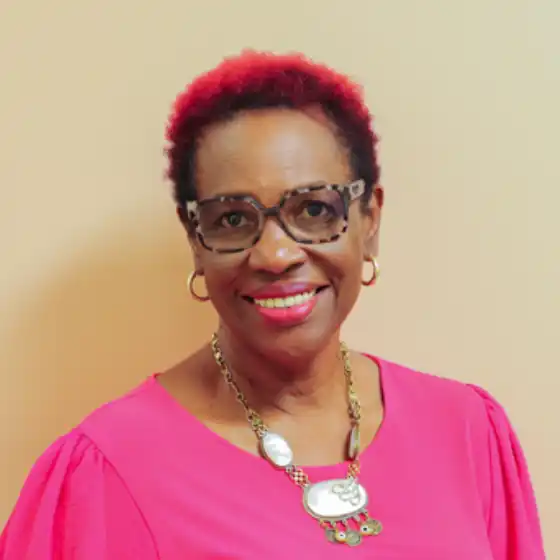
Una May Gordon
Senior Climate Change Expert & Resilience Advisor
Una May has over 40 years’ experience successfully intersecting policy formulation and development programmes in agribusiness, natural resources management, climate change adaptation and mitigation. For six years & up to July 2022, she served as the Principal Director, Climate Change for the Government of Jamaica Ministry of Economic Growth & Job Creation where she was responsible for building out Jamaica’s climate change agenda, developing a shared vision among all stakeholders for the implementation of sustainable & transformative actions.
She currently works as an independent expert supporting governments, private sector, civil society and other institutions across the Caribbean region & globally, to increase their access to climate finance, promote climate governance and integration of climate risk into planning & decision making processes. For five years & up to June 2024, she served as Chair of the Board of Governors of the Caribbean Community Climate Change Centre (CCCCC). She is the current Co-Chair of the Board of Directors of the Caribbean Climate Smart Accelerator (CCSA), Board member of the Caribbean Sustainable Energy & Innovation Institute, and Board member of Recycling Partners of Jamaica.
Una May holds a Master of Science in Environmental Sciences from Wageningen University and a Bachelor of Science in Agronomy (Hons) from the University of the West Indies. She was awarded an Honorary Doctorate of Laws in Humanities for her outstanding contribution to the field of rural development in the Americas. She is an I Change Nation Golden Rule Ambassador. .
Mr. Olivier Guyonvarch
Ambassador of France to Jamaica

Olivier Guyonvarch
Ambassador of France to Jamaica
Born on the 18th of August 1965, Mr. Olivier Guyonvarch is a Senior Foreign Affairs Advisor. He was bestowed the honour of Knight of the Order of Merit (Chevalier de l’Ordre du Mérite), and is the recipient of the Foreign Affairs medal (gold level), as well as the medal of National Defense Volunteer Services and is a reservist citizen of the French Navy (CF).
He is a career diplomat and specialist in China and the Law of the Sea. Prior to joining the French Ministry of Foreign Affairs, he pursued a technical degree in agriculture (1986). With a passion for Chinese language and culture, he completed a Master’s degree in 1990 and from 1988, paid frequent visits to China and was posted 3 times.
He joined the French Ministry of Foreign Affairs by way of the professional examination (concours) for Secretary of Chancery (1996-1998), and then was promoted through examination to Secretary (2001) and Counsellor (2004).
He started his carrier at the Quai d’Orsay within the Department of Financial and Budgetary Affairs (1996-1998), and was subsequently appointed Vice-Consul of the Consulate General of France in Wuhan, China (1998-2001).
Following his posting in Wuhan, he returned to Paris to work within the Department for Asia and Oceania, as Desk Officer (2001-2005), firstly at the sub-directorate for Southern Asia, then the sub-directorate for the Far Eastern Orient (in charge of Chinese interior policy).
He was then posted to the Embassy of France in Beijing from 2005 to 2008 as the Head of the Press and Communications Section, then at the Embassy of France in Singapore as First Counsellor and Deputy Head of Mission (2008-2012). On his return to Paris he chose the position of Assistant Director of the Law of the Sea, of River law and Poles, within the Legal Affairs Department (2012-2016). It is during that period that he visited Kingston four times to head the French delegation at the International Seabed Authority.
He returned to Beijing in 2016-2017 as Advisor to the Ambassador on questions of international law and security. He was then appointed Consul General of France in Wuhan (2017-2021), a period marked by the outbreak of the Covid-19 pandemic and the evacuation by air, organized by France, of 520 French citizens, Europeans and citizens of other nations.
Dr. Ruth Potopsingh
Consultant in Energy and Environment, Former Associate Vice President-Sustainable Energy and Head, Caribbean Sustainable Energy and Innovation Institute (CSEII), UTech Ja

Dr Ruth Potopsingh
Consultant in Energy and Environment
Former Associate Vice President-Sustainable Energy and
Head, Caribbean Sustainable Energy and Innovation Institute (CSEII), UTech Ja
Ruth Potopsingh has a distinguished career in energy , environmental management, development planning, corporate governance and policy development. A graduate of the University of the West Indies and the University of London, she holds a PhD in Sustainable Development, an EMBA and an MSc in Urban Development Planning. A Commonwealth Scholar, her passion is for sustainable development in the face of a global climate crisis. She was awarded by CARICOM as an outstanding woman in sustainable energy 2023.
She has over thirty-five years’ experience in the energy sector, most of which were at the Petroleum Corporation of Jamaica (PCJ) where her ultimate position was Group Managing Director. There, she led National Energy Efficiency and Conservation programs; spearheaded the national program which saw the removal of lead in gasoline and introduction of two octane grades of gasoline. She was to later work on realizing 10% ethanol in gasoline in a bid to see cleaner fuels in the local market .
Her work in the petroleum sector saw the introduction of several environmental standards and regulations ranging from fuel quality to oil spill contingency planning and the prevention of ground water contamination. Her environmental commitment positioned her well to advance for Jamaica’s renewable energy transition from its inception. Preparing the first Bioenergy Resources Assessment for Jamaica she initiated research in 5 species of fast-growing trees to address deforestation as a result of the increased use of charcoal for cooking. She pioneered the Jamaica Solar Energy Association to stimulate commercial interest in the industry and was part of the decision to build the first commercial wind farm at Wigton.
Dr Potopsingh was a key player in the advancement of Jamaica’s National Energy Policy 2009 -2030 and its draft sub policies as well as a contributor to Vison 2020, Jamaica’s National Development Plan.
Transitioning from corporate Jamaica to academia in 2010 she joined the University of Technology, Jamaica where she was Associate Vice President- Sustainable Energy. There she forged local, Caribbean Regional and International alliances to highlight the nexus between energy and climate change and introduced a cutting edge Master’s degree program in Sustainable Energy and Climate Change . She participated in a number of international sponsored research projects and managed a green hydrogen project, a Global Fuel Economy project for the Government of Jamaica .
At the university she obtained sponsorship from the JPS which installed a 100 kilowatt solar system which is a first step for the wider adoption of renewable energy on the Papine Campus engaging students and staff in energy management as volunteers. Dr Potopsingh is currently a consultant in energy and environment.
Theresa Rodriguez-Moodie
Chief Executive Officer of the Jamaica Environment Trust (JET)
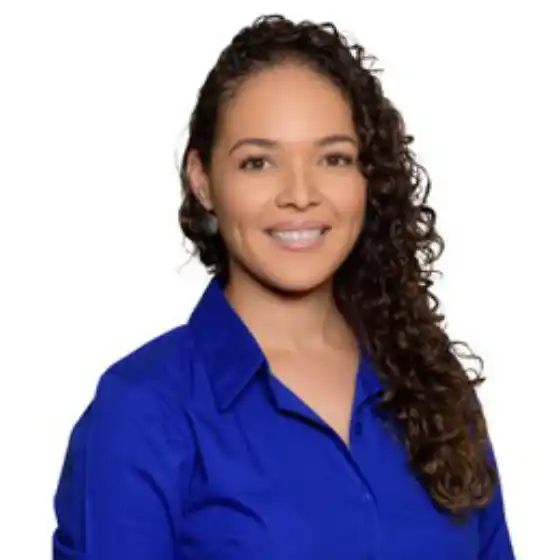
Theresa Rodriguez-Moodie, PhD.
Chief Executive Officer of the Jamaica Environment Trust (JET)
Dr. Theresa Rodriguez-Moodie always had a passion for the environment growing up. She developed this love even further after completing her BSc in Geography. She went on to complete her PhD in Geography at the University of the West Indies, Mona in the area of coastal geomorphology and paleoclimatology.
Dr. Rodriguez-Moodie has worked as an Environmental Scientist and Climate Change Vulnerability Specialist both locally and regionally, for private sector, government and multilateral agencies such as the World Bank Group and the IDB. She has extensive knowledge of IFC and IDB environmental and social safeguards and policies. In her over 10 years of experience she has developed specific skills in conducting environmental assessments, hazard analysis and mitigation, climate vulnerability and risk assessments.
In July 2021, she became the CEO for the Jamaica Environment Trust where she has been leading its environmental advocacy and working on projects geared towards the protection of Jamaica’s natural resources and public health. Her advocacy efforts focus heavily on the need for greater environmental monitoring and enforcement, access to environmental information, the need for transparency and public engagement in Jamaica. In her work she also addresses challenges posed by extractivism and deep-sea mining, proposing actions for the government to honour the Jamaican Constitution which guarantees all Jamaicans a right to a healthy environment.
Judith Slater
British High Commissioner to Jamaica
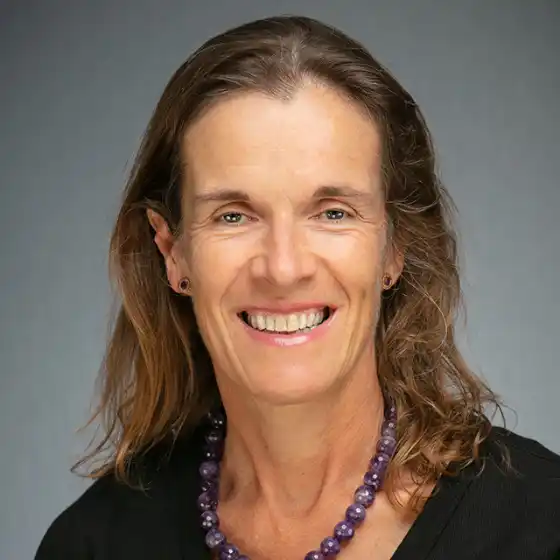
Judith Slater
British High Commissioner to Jamaica
Judith Slater succeeded Asif Ahmad CMG as British High Commissioner to Jamaica on 13 October 2021. She’s the first woman British High Commissioner to Jamaica.
Judith was Consul-General in Istanbul and simultaneously HM Trade Commissioner for Eastern Europe and Central Asia, covering 14 markets. Prior to this, she was Deputy High Commissioner and South East Asia Regional Director of Trade and Investment in Singapore until September 2015.
Her previous posts include Deputy High Commissioner in Pretoria, South Africa from 2007 to 2011 and British Consul-General in Houston, Texas from 2004 to 2007. In the FCDO in London, Judith’s posts have included Private Secretary to the Minister of State responsible for relations with Asia and Head of Nuclear Policy Section in Non-Proliferation Department. She has also had overseas postings in New Delhi and Canberra.
Judith has a law degree from St John’s College, Cambridge. She attended Howell’s School, Denbigh, Denbighshire, Wales in the UK.
Michael Taylor
Professor of Climate Science and Dean of the Faculty of Science and Technology, Mona Campus, The University of the West Indies (UWI
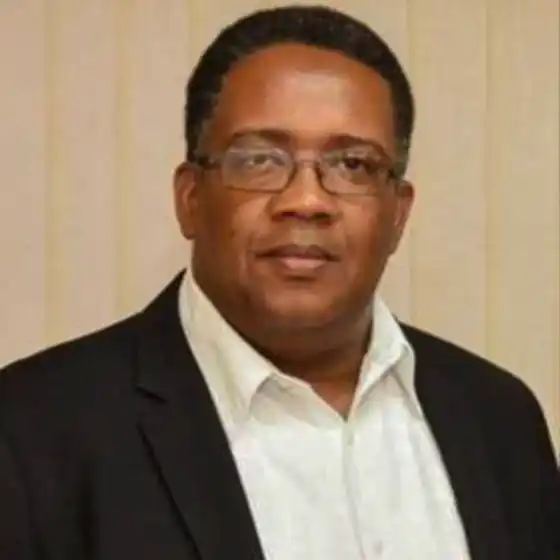
Michael Taylor
Professor of Climate Science and Dean of the Faculty of Science and Technology, Mona Campus, The University of the West Indies (UWI
Michael Taylor is Professor of Climate Science and Dean of the Faculty of Science and Technology at the Mona campus of The University of the West Indies (UWI), Mona Campus.
He is the co-director of the Climate Studies Group, Mona (CSGM) a research body which explores climate variability and change for the Caribbean region. He is well published and cited for his scientific work on the impact of climate change on the small islands of the Caribbean region.
He is a Coordinating Lead Author on the Special Report on 1.5 Degrees of the Intergovernmental Panel on Climate Change (IPCC), a Silver Musgrave Awardee for Science (2013), and the 2019 ANSA Caribbean Laureate for Excellence in Science. In 2021 he was named amongst Apolitical’s 100 Most Influential Academics in Government globally.
Most recently, he authored a chapter The Climate Book. Prof. Taylor was recently appointed as a TWAS Fellow (effective January 1, 2024).
Dr. Emily Wilkinson
Principal Research Fellow in ODI's Global Risks and Resilience Programme and Director of the Resilient and Sustainable Islands Initiative (RESI)
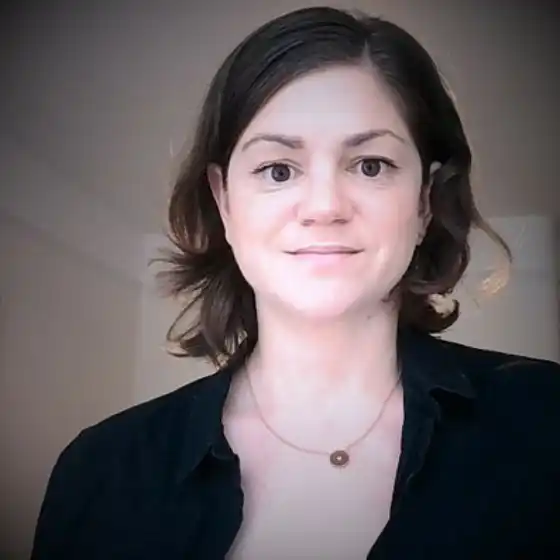
Dr. Emily Wilkinson
Principal Research Fellow in ODI's Global Risks and Resilience Programme and Director of the Resilient and Sustainable Islands Initiative (RESI)
Dr. Emily Wilkinson is a Principal Research Fellow in ODI’s Global Risks and Resilience Programme and Director of the Resilient and Sustainable Islands Initiative (RESI).
She has 25 years’ experience as a researcher, analyst, journalist, lecturer and adviser to government, providing critical analysis and leading debate on climate and disaster risk governance and financing.
Emily is a specialist in Small-Island Developing States (SIDS), focusing on climate policy, access to finance and opportunities for long-term development in an era of accelerating climate change. She served as Chief Scientific Adviser to the Climate Resilience Agency for Dominica (CREAD) from 2019-2023, supporting the nation’s ambition to become the world’s first climate resilient nation, and is a senior adviser to the Alliance for Small Island States (AOSIS).
Emily has led major research and learning programmes on adaptation and resilience to climate extremes and disasters, and published over 50 journal articles, reports and book chapters. She holds a PhD in Human Geography from University College London.
Registration Fees
one day
-
Standard Registration US$100
-
Student Rate (with ID) US$55.00
-
Early Bird Registration (before April 10, 2026) US$80.00
Two days
-
Standard Registration US$175.00
-
Student Rate (with ID) US$100.00
-
Early Bird Registration (before April 10, 2026) US$150.00
Programme Agenda
12:30 pm
Lunch break
12:30 pm
Lunch break
Organising Committee
Utech, Ja. Climate change conference 2024
Chair: Dr. Glendon G. Newsome
Faculty of the Built Environment, UTech Ja
Mrs. Suzette Adams-Rickards
Faculty of the Built Environment, UTech Ja
Mr. Omar Alcock
Climate Change Division
Ministry of Economic Growth and Job Creation
Mr. Fernandez Anderson
Faculty of the Built Environment, UTech Ja
Prof. Carol Archer
Faculty of the Built Environment, UTech Ja
Dr. Earl Bailey
Faculty of the Built Environment, UTech Ja
Mr. David Barrett
Course Advisory Committee, Master of Science is Sustainable Energy & Climate Change, UTech Ja
Mr. Ivor Bennet
Marketing Unit, UTech Ja
Dr. Therese Chambers
Faculty of Engineering and Computing, UTech Ja.
Mr. Peter Clarke
Water Resources Authority, Jamaica
Ms. Crystal-Gail Clue
Faculty of the Built Environment, UTech Ja.
Ms. Shakira Davis
Learning Technologies Support Unit, UTech Ja.
Dr. Rosemarie Dixon
College of Business and Management, UTech Ja.
Mr. Erinski Easy
Learning Technologies Support Unit, UTech Ja.
Mr. Wycliffe Frater
Faculty of the Built Environment, UTech Ja.
Dr. Nadine Freeman-Prince
Faculty of the Built Environment, UTech Ja.
Ms. Tiffany Givans
Faculty of the Built Environment, UTech Ja.
Dr. Anetheo Jackson
Faculty of the Built Environment, UTech Ja.
Dr. Addonna Jardine-Comrie
Faculty Science and Sport, UTech Ja.
Mr. Maurice Mason
Institute for Sustainable Development, UWI
Mrs. Mlela Matandara-Clarke
Faculty of the Built Environment, UTech Ja.
Mr. Ian McGowan
Faculty of Engineering and Computing, UTech Ja.
Mr. Frederick Mills
College of Business and Management, UTech Ja.
Dr. Laurence Neufville
Faculty of the Built Environment, UTech Ja.
Ms. Meisha Paul
Faculty of the Built Environment, UTech Ja.
Dr. Elizabeth Pigou-Dennis
Faculty of the Built Environment, UTech Ja.
Dr. Ruth Potopsingh
Head, Caribbean Sustainable Energy and Innovation Institute (CSEII), UTech Ja.
Mr. Kirkland Rowe
Faculty of Engineering and Computing, UTech Ja.
Mr. Carlyon Russell
Learning Technologies Support Unit, UTech Ja.
Mrs. Sara Shabaka
Faculty of the Built Environment, UTech Ja.
Dr. Copeland Stupart
Faculty of the Built Environment, UTech Ja.
Ms. Mareka Sutherland
Faculty of the Built Environment, UTech Ja.
Mrs. Patrice Thomas-Cameron
Faculty of the Built Environment, UTech Ja.
Mrs. Nakiesha Whitfield
Caribbean Sustainable Energy and Innovation Institute (CSEII), UTech Ja.
Mr. Meredith Williams
College of Health Sciences, UTech Ja.
Prof. Garfield Young
Faculty of the Built Environment, UTech Ja.
